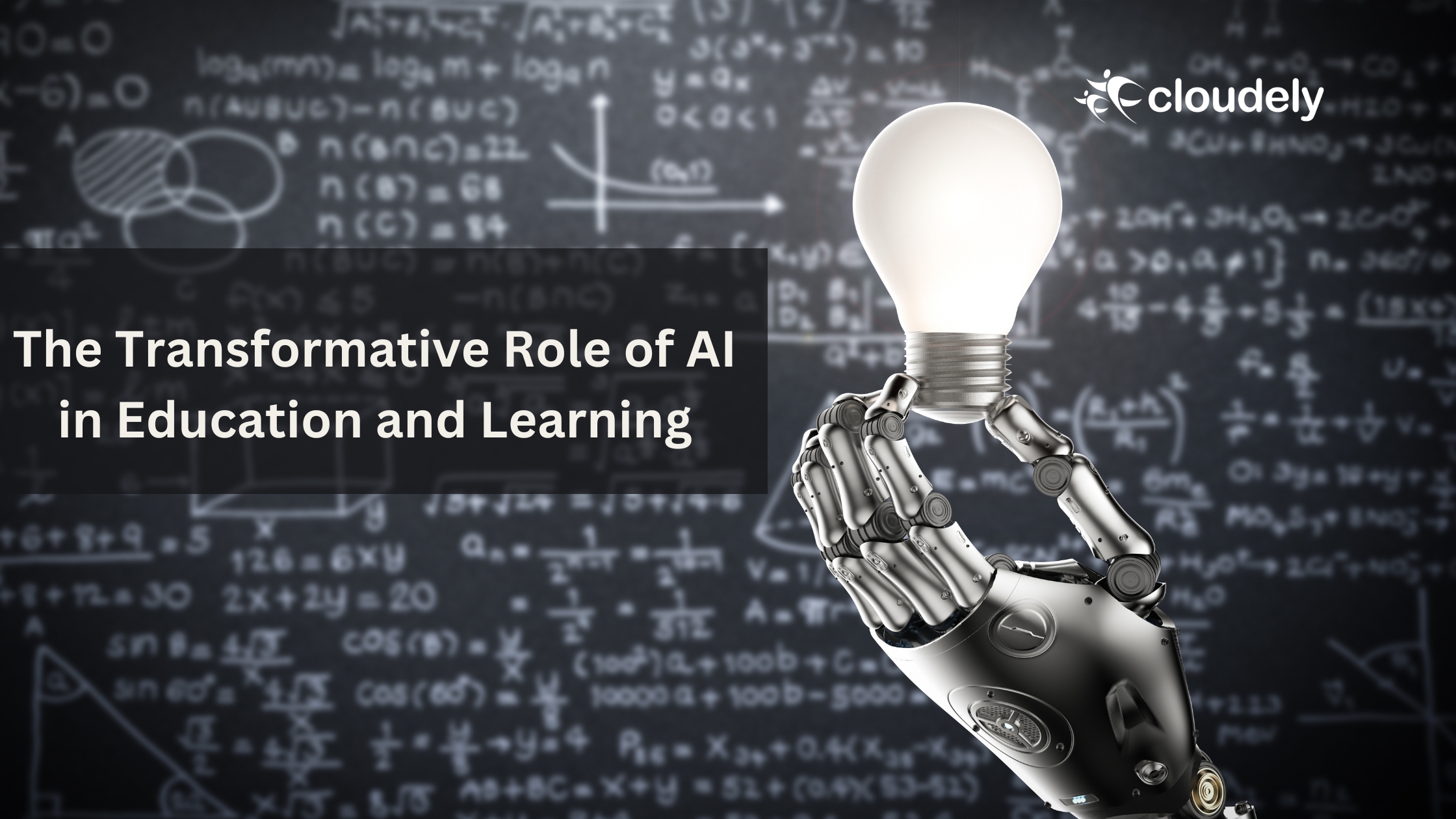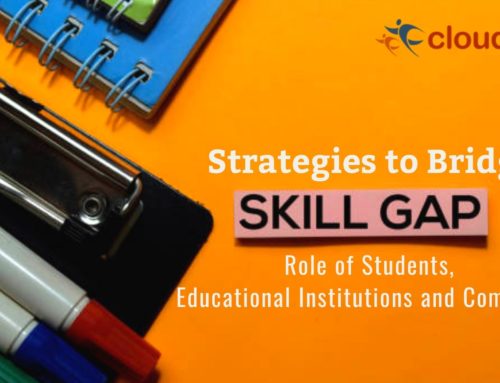The field of artificial intelligence, or AI, is a dominant force within the technology sphere, and its results manifest through various industries. In the field of education, AI is bringing in significant changes. It is transforming the system of learning, teaching, and how educational institutions operate. In this blog, we will discuss AI transformation in multiple areas of education and learning.
Table of Contents
What do you understand by AI and its impact on education?
The name artificial intelligence or AI is a group of technologies that allow machines to learn from different types of data and subsequently make decisions based on those examples. AI revolutionizes the educational realm which will alter it in diverse ways.
One of the most significant ways AI is transforming education is through its power to automate routine tasks. It performs all administrative functions such as marking, monitoring attendance, and handling registration of courses. With this automation, faculty can save time and focus on high-value tasks such as content development and student engagement.
AI is also a significant driver of individualized learning. With AI algorithms, students can benefit from personalized recommendations for learning materials according to their individual preferences. This individualized approach keeps students actively engaged and motivated increasing their academic performance.
In addition, AI leads to better teaching quality. The teaching data can be analyzed using algorithms that provide educators with practical knowledge on how to better their techniques. AI can also detect errors in student work and give instructions to educators to help their students.
Finally, AI helps in the management of educational organizations. With the help of AI-driven algorithms, institutions can better allocate resources in the decision-making process and foresee student demand accurately. This empirical approach improves efficiency and decision-making at institutes.
Some statistics to consider:
- The AI’s impact on the Ed-tech market is gaining momentum. As outlined in a Business Today article, 47% of all LMTs are projected to be powered by AI technology come the year 2024.
- According to NITI Aayog’s 2018 report, AI can increase India’s economy by close to USD 1 trillion by the year 2035. In India, AI can transcend capital and labor limits leading to new ways of creating value and economic expansion.
Benefits of AI in Education
AI brings many benefits to the education field by changing how we learn and teach. Here are some key benefits:
- Personalized Learning: AI can develop individualized learning plans for each student, adjusting the course and materials to fit their specific requirements and preferences.
- Improved Assessment: AI performs tasks of assessment, such as grading essays and giving feedback; this helps the teachers save time on other essential duties.
- Increased Engagement: AI provides students with recommendations on learning materials according to their desires, improving motivation and involvement.
- Improved Teaching Quality: AI processes teaching data, providing actionable insights for instruction to become better.
- Enhanced Resource Management: AI helps educational organizations make informed resource allocation decisions and foresee student demand.
The influence of AI on education, which is not limited to grading alone, affects both teachers and students. It changes learning and enables teachers to become better educators.
What would be the role of AI in online learning?
AI-driven eLearning refers to using artificial intelligence (AI) to individualize learning via online education. Here are its advantages:
- Personalized Learning: AI examines students’ interests, learning tendencies, and strengths to design learning experiences.
- Efficient Grading: AI automates the grading process, allowing teachers to provide additional comments and assistance.
- Simulations and Interactivity: AI designs simulations and practice activities that require hands-on learning.
- Targeted Instruction: AI provides individualized instruction to the learners as required.
AI-powered online learning platforms:
- Tailored Content: Provide personalized information tailored to student interests and learning requirements.
- Learning Patterns: Identify trends and offer tailored materials.
- Progress Tracking: Collect data on student performance expeditiously to provide for prompt revision.
- Voice Recognition: Evaluate spoken responses and give feedback.
- Reports and Recommendations: Provide data-based ideas for teachers to assist the students better.
- Engagement Monitoring: Monitor student engagement for effectiveness and task completion.
- Real-Time Feedback: Quick responses, such as motivating and engaging students well.
Automated Grading System
Manual grading is labor-intensive for teachers and might adversely affect student experience. AI in education offers automated grading solutions, which have several advantages:
- Increased Efficiency: Automated grading systems free educators from the monotonous tasks of grading multiple-choice tests. The time can be reallocated to more useful activities such as planning lessons and individualized comments.
- Improved Accuracy: Human errors are eliminated through automation, resulting in accurate test scoring.
- Enhanced Accessibility: On the other hand, automated grading ensures timely feedback to students, thus allowing them to make minor alterations in their study methodologies.
- Boosted Motivation: Automatic Grading systems can provide positive reinforcement, which encourages students to do better on their tests.
- Cost Savings: Automation in grading is likely to eliminate the need for schools to hire additional workforce for grading.
- Deeper Insights: The use of automated systems in education gives educators an insight into students’ abilities, making it possible to understand the needs of a learner and provide individualized instruction.
Personalized Learning with AI
The concept of personalized learning recognizes every student’s differences in the mode of learning, preferences, needs, and experiences. It entails the adaptation of various teaching strategies and methods that reflect the particular needs of each learner.
Personalized learning is an instructional method that considers the differences in individual approaches to learning, interests, and skills. It personalizes instruction to address the needs of each learner through individualized learning environments, varied teaching methods, and appropriate testing procedures. It also introduces the focus on metacognitive skills, self-regulation, and learning independently.
Nonetheless, the idea of personalized learning refers to educating learners according to their specific needs, interests, and capabilities. Personalized learning plans are created from the student’s prior knowledge and preferred style of learning.
Role of AI in Personalized Learning
The combination of data collection and technology created by artificial intelligence plays a significant role in supporting automated and personalized learning strategies. AI enhances personalized learning by:
- Recommending Learning Materials: AI-based algorithms give students individually tailored learning materials according to their peculiar preferences, increasing the level of engagement, motivation, and attainment.
- Customizing Curricula: Through analyzing teaching data, AI helps educational institutions obtain actionable insights that would allow curriculum improvement. It also helps identify mistakes in student work and provides a correction instruction.
- Enhancing Virtual Reality Experiences: Personalized virtual and augmented reality applications are provided with the help of AI-driven algorithms that offer content based on personal preferences. This personalization promotes engagement, motivation, and improved performance.
Finally, to sum up, AI is crucial in personalized learning, which caters to the learning requirements of every student.
Conclusion
While AI can have great prospects from the point of view of education, it gives rise to a new vision for students and even causes changes in methods teachers and schools use. It automates repetitive jobs, improves the way teachers teach, and provides tailored learning for each student. AI also serves in operating learning platforms, tutoring, grading, customization of the curriculum, and enhancing immersive experiences.
At Cloudely, we are on a mission to empower educational institutions with digital transformation. To learn how we achieve this, contact us at hello@cloudely.com.




